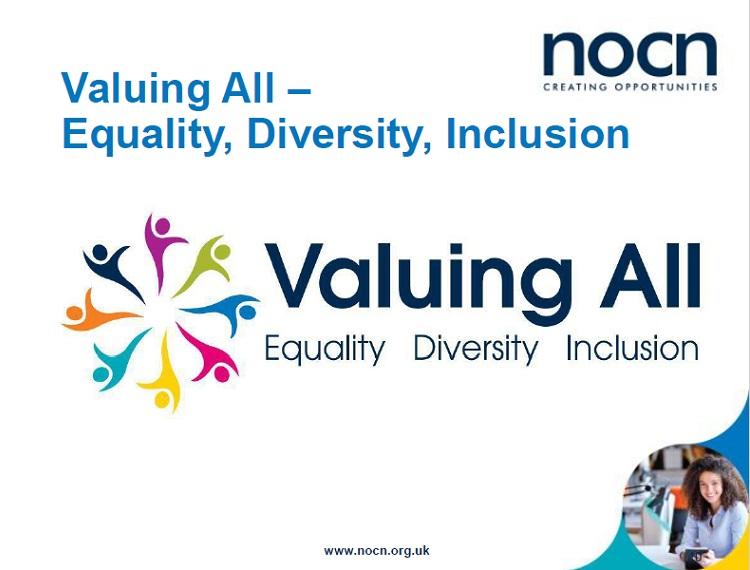How diversity can bring competitive advantage to employers

It has been said that if every male engineer had a female counterpart, the skills crisis in that sector would be solved at a stroke.
Certainly, in 2015, when the Royal Academy of Engineers reported that the UK would need another million new engineers and technicians within five years (requiring a doubling of the annual number of graduates and apprentices in these fields), women accounted for just ten percent of the sector’s workforce.
As such, achieving that 1:1 ratio, would be a significant step forward, to say the very least. In fact, many commentators claim that unless STEM careers can be made more attractive to women, we will never plug the yawning gap.
And if we don’t do that, there is no doubt that our tech companies and manufacturers will be outcompeted by global rivals with an insatiable appetite for invention, improvement and social change. Industrial powerhouses, such as India and China, produce hundreds of thousands of engineering graduates a year. Is it a coincidence that India reported its engineering gender gap had shrunk to its narrowest extent in 2015? Then, 85% of men and 79% of women expressed interest in working in the sector – and only 29% of the population considered it masculine.
‘Engineering’ a gender-neutral future
It is heartening that schools now promote STEM subjects and engineering as a career to all young people with an aptitude and interest.
However, traditional barriers to diversity persist: despite the fact that most production and engineering spaces are now light, clean, airy environments, the traditional image of dark, oily, noisy workplaces might be more off-putting to girls than boys. With that in mind, parents often dissuade their daughters from pursuing a ‘male career’. Couple these factors with survey after survey showing that girls think STEM subjects are too difficult (despite outperforming boys in them), or that they are better suited to boys, then the scale of the problem becomes clear.
It all makes for a grim self-fulfilling prophecy: if women know that engineering is male-dominated, it serves as yet another disincentive to entry – for fear of encountering an intimidating, ‘laddish’ culture of sexism and harassment.
And of course, all this doesn’t just come at a heavy economic price: there is also the personal cost to thousands of people who are denied a fulfilling, worthwhile career.
In addition, sectors overstocked with men can impact on other industries – as well as on apprenticeships, a fantastic route to plugging national skills gaps. Recent research by Prudential revealed that two-thirds of Scottish school leavers mistakenly believe most apprenticeships are in predominantly male sectors, like construction, IT, manufacturing and agriculture.
This was reflected by the attitudes of many parents – with 34% of them deeming apprenticeships more suitable for boys.
In fact, there are apprenticeships for a vast array of sectors and occupations – from beauty to religious education by way of funeral celebrancy and farm working and from road passenger transport to heritage skills. Among fields they cover are practical and technology disciplines; health and care; retail and commercial; science and mathematics; leisure, hospitality and tourism; the humanities and arts; business, finance and law; social science; and education and training.
Each and every qualification is open to both men and women and the only place a gender specific scheme exists is in people’s misconceptions. As such, they are key for getting women into manufacturing, engineering, science and technology jobs – as well as any other field of endeavour that interests them.
EEF chief operating officer, Caroline Gumble, has a mission to mentor the next generation of women in engineering and thinks apprenticeships are key to achieving this. EEF graduates hundreds of engineering apprentices every year and inspires female trainees by showing them what is possible and that their passion for technology and creativity are not unusual.
On International Women in Engineering Day, in June, Caroline said: “It is our responsibility, as the manufacturing leaders of today, to pave the way for tomorrow’s innovators.”
Of course, diversity is not just a gender issue. Any occupation that is the near exclusive preserve of one group as a matter of course is unlikely to be able to field the best players available when competing with international rivals.
This means that whether talent loses out to bias by sex, age, ethnicity, religion, sexuality or any other demographic marker, it is likely to have severe implications for productivity. Tellingly, the UK has a longstanding productivity shortfall, posting rates that are 30% lower than the other G7 nations. This makes for hours longer, lower wages and reduced tax revenues.
Indeed, the Office for National Statistics reported in July that UK workers’ productivity has dipped below pre-financial crisis levels, as we trail the likes of US, France and Germany. This is hardly the most encouraging news as the country enters the brave new world of Brexit.
NOCN, valuing all
At NOCN, we work hard to give any and all people the opportunity to improve their lives and boost career prospects by learning with our educational services. We were the first Awarding Organisation and Apprenticeship Assessment Organisation to be honoured with a Leader in Diversity award by the National Centre for Diversity – a leading organisation promoting equality for all in the UK.
Our Equality, Diversity and Inclusion policy is called Valuing All, because all people are valued. With this in mind, we actively fight discrimination, give equal access to opportunities and remove barriers to involvement.
The work of organisations that support employers is a crucial plank in bringing about true diversity in every workplace.
However, grander ambitions are also required to help them make this the norm and national awareness campaigns are needed to bring about wholesale cultural change and altered public attitudes.
All young people should be told by parents, teachers, the media and policy makers as they grow up that they can go as far and as fast in their chosen career as their aptitudes, attitudes and dedication allow. That way, everybody will know that they are as good as the next man or woman and that they have many opportunities to make the most of their lives.
In this way, we will recruit the brightest and best into apprenticeships, empowering them to boost employers, sectors and the nation’s economic performance alike through raised productivity.
Graham Hasting-Evans, Group Managing Director, NOCN


Responses